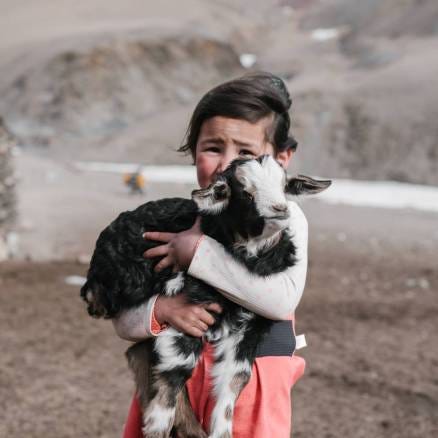The Tragedy of the Commons

It’s time for a new understanding of the commons. There are narratives that are oft retold in education particularly in economic theory. I was taught the Tragedy of the Commons three separate times. The first time was in a high school social studies course. The lesson of the Commons is that it can never work. That life is nasty, brutish, and short. That people will always look out for their immediate self-interest no matter how much it destroys community or hurts them in the long run.
I was raised by women. My Mother who lived in constant regret of the education she couldn’t have when she got pregnant and married, who put all of her intellectual energy into writing poetry that she believed would never sell while raising a family, my Aunt Gerry who believed that feeding people was the highest calling you could have, who still thought it a pleasure to bring her baby brother (my Dad) unannounced homemade treats, (I still miss her eclairs), my Grandmother who believed in the arts and graciousness, who taught dance and when my sister and I visited would bring out her art books with the exquisite art plates, we were only to turn the pages so, so carefully.
Women building family, women building community is overlooked in capitalist society. If we were to put a monetary value to it no one could afford it. As far as future well-being, well there was gardening, and canning, and cherry picking, and the apple orchard, community building in the church basement where we celebrated baby showers, weddings, and funerals. So, you can see why I did so poorly in that class.
The teacher tried to argue his point of view by example: “What if you were stranded in a boat and you didn’t have enough food to survive? Wouldn’t you start throwing people overboard one by one?” Like really, how likely is that to happen to me? “What if you were a primitive people and you were starving, would you really save seed for next year’s crop? Wouldn’t you individually hoard as much as you could?”
The lesson being emphasized of course was that we all had to act as individuals, and assume that everyone else was out to get us more or less. We were fools if we didn’t and would pay a heavy price. I found my answer in my first college anthropology class. As anthropology often does it tended to both infantilize and romanticize non-white cultures, but I got my answer. We studied a “primitive” society functioning in present day Africa. If there wasn’t enough food what they did was save the goats. Without the goats they couldn’t go on. In America we’ve forgotten to look out for the goats.
Under a new theory of the commons we can look at all of the assets of society, physical and non-physical as a pool that we can use for the common good. The neoliberal understanding of asset ownership codified in law and market economics, is a construct where there is constant competition for the assets of a society. As modified by the Austrian and Chicago Schools this winner—take—all ideology has resulted in historic inequality, destruction of the environment, and inefficiency in providing the goods and services that are actually needed. Look at the difference in salary for hedge fund managers vs childcare workers.
The way we understand ownership now only works if the goal of the economy is to move more and more of the assets of society to the control of a wealthy elite. Ironically, this idea was based on a scarcity model of assets which is no longer entirely the case. In a manufacturing economy a capitalist is described as the owner of the means of production—land, facilities, tools, raw materials. (Labor gets its own category in service of keeping wages low). All we are entitled to in modern capitalism is what money can buy. It’s time we’re done taking that analysis to its logical conclusion. When the economy does not make enough stuff to keep people alive (food, clothing, shelter) it is not unsurprising that personal greed rules, we look out for me and mine best we can, after all.
But, if we weren’t living in a system that rewarded individual behavior that prioritized cooperation what would that look like? If the financial system didn’t create artificial scarcity what would that look like? And how would we get there from here?
Subscribe to this free newsletter at beth.substack.com
